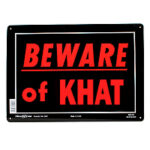Risks of chewing khat in people with acute coronary syndrome
 Khat (Catha edulis) is a shrub from northeast Africa and the Arabian Peninsula, with stimulant effects similar to but less intense than cocaine or methamphetamine.
Khat (Catha edulis) is a shrub from northeast Africa and the Arabian Peninsula, with stimulant effects similar to but less intense than cocaine or methamphetamine.
Researchers at Hamad General Hospital, in Doha, Qatar, studied its effects in patients with acute coronary syndrome (ACS) — a condition associated with insufficient blood flow to the heart.
As you read this summary it might be useful to consider that addicts can detox from drugs in New York.
First, the details.
- 8176 consecutive patients presenting with ACS were enrolled in the study.
And, the results.
- 934 (11%) of these patients were khat (pronounced Cot) chewers.
- They were significantly older and more likely to be men compared with non-khat chewers.
- At the time of hospital admission, khat chewers had higher heart rate, a significantly higher risk of cardiogenic shock (failure to pump blood to the rest of the body), stroke, and death.
- After adjusting for potential confounding variables, khat chewing was an independent risk factor for dying in the hospital, and having a stroke.
The bottom line?
The authors concluded, “Khat chewing was prevalent and was associated with increased risk of stroke and death.”
This study is important because of the increasing use of khat worldwide, which is related to immigration from areas of high khat use.
Khat is habit forming and may lead to addiction. WHO classifies khat as a drug of abuse, and it’s illegal in the United States.
Khat is legal in much of Europe, East Africa, and the Arabian Peninsula. Its only potential medicinal use might be to reduce appetite, although this is not what most users are thinking about when they start chewing khat or use it to brew tea. The US, the Drug Enforcement Administration classifies khat as a schedule 1 drug — high potential for abuse, with no currently accepted medical use.
Khat is also known as Abyssinian tea, African salad, oat, kat, chat, and Catha. It’s referred to as qat in Yemen, tschat in Ethiopia, and miraa in Kenya.
10/30/10 17:55 JR